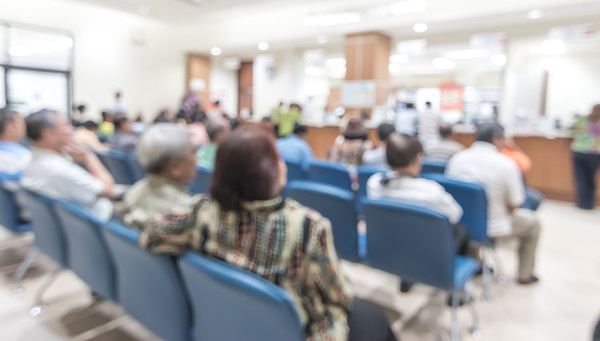
Tension is rising in the medical community as the quarantine authorities move to downgrade the infectious disease level of Covid-19 soon.
When the crisis level is adjusted, and quarantine measures are relaxed, the burden on the healthcare system is bound to increase. There are also concerns about the spread of infections within hospitals, especially if the mandatory wearing of masks at medical institutions is changed to a recommendation.
The Korea Disease Control and Prevention Agency (KDCA) held a meeting of the National Advisory Committee on Infectious Diseases Crisis Response on Monday and discussed lowering Covid-19’s level from Level 2 to Level 4. The advisory committee reportedly shared that it is possible to switch to Level 4 this month.
The KDCA is scheduled to announce whether to shift Covid-19 to a Level 4 infectious disease and implement the second step in its crisis-phase adjustment roadmap after a Central Disaster Management Headquarters meeting.
Level 4 transition means that Covid-19 will be managed within the general healthcare system, like influenza. In addition, if the crisis phase is adjusted to phase 2, various supports, such as Covid-19 rapid antigen test subsidies, will be suspended or reduced. It also includes changing the requirement to wear masks from mandatory to advisory in hospital-level healthcare facilities and vulnerable facilities, including nursing homes.
It has been consistently pointed out in the medical field that it is unprepared to manage Covid-19 like the flu. Most Covid-19-related coverages will be finished rather than absorbed into the general healthcare system.
Dr. Kim Woo-ju, a professor of infectious diseases at Korea University Guro Medical Center, said the time has come for the public and medical professionals to stand independently.
“We have now entered the self-reliance phase regarding Covid-19," Professor Kim said. He added that with the transition to Level 4, Covid-19 sentinel surveillance will be replaced by sampling surveillance, and the weekly announcement of the outbreak status and risk assessment will be suspended, saying, “Even if the pandemic resurges without knowing about variants, the public and medical workers will not know what exactly is occurring,"
Professor Kim pointed this out in an article in the latest issue of the Korean Medical Association's E-newsletter, suggesting a "self-reliance strategy for the public and medical professionals.”
"The public will be reluctant to seek a diagnosis because they will have to prevent Covid-19 on their own and test at their own expense even if they suspect it. High-risk groups will be infected with Covid-19 and become severely ill, requiring hospitalization, revealing the medical system's overloaded status,” he said. "In hospitals, the number of confirmed cases among medical workers is increasing, and the difficulty of treating severe Covid-19 patients is increasing."
Kim expressed particular concerns about removing the mask mandate at medical institutions. "The government is sending out a contradictory message by lifting the mandate to wear masks in hospitals while calling for thorough infection control," Kim said.
He emphasized the importance of infection control in medical institutions, presenting a study that showed that 10,670 medical personnel were infected with Covid-19 in Korea from March 2020 to February 2022, of whom 1,695 were doctors and 5,898 were nurses.
"Out of the 15 healthcare workers who died (from Covid-19), nine were doctors and two were nurses, showing a fatality rate of 0.53 percent for doctors, 16 times higher than the 0.034 percent for nurses," Kim said. "This is likely because doctors are in close contact with patients older than nurses. Therefore, healthcare workers should get a booster dose of the Covid-19 vaccine this autumn to protect themselves and avoid putting their patients at risk."
He advised that the public should also do their part by following basic hygiene practices, getting vaccinated against Covid-19, wearing masks, and getting tested for Covid-19 quickly if they have a cough, sore throat, or fever.
"The time has come again that reminds me of the Nobel Literature Prize winner ‘City of the Blind’ by Jose Samaragu," Professor Kim said. "The Covid-19 virus is invisible to the naked eye, but those who recognize and pay attention to the epidemic situation where patients are everywhere will be safe."

